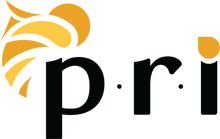
The Buzz On Bees In New Zealand
Bees. Superheroes to every human - and really to every animal - around the world. Essential to our survival, bees along with many other important pollinators, are responsible for at least a third of the crops we use every day. In New Zealand specifically, they team up with the mighty manuka shrub to create the most magical, medicinal honey in the world - manuka honey!
While native Maori peoples had been using all parts of the manuka shrub both medicinally and to create their homes and tools, there were no bees in NZ to make honey until 1839. This was the year Mary Bumby, sister of a Methodist missionary, brought two hives ashore and introduced European Honeybees to New Zealand.
Brought over specifically to make honey, these bees also quickly became vital to crop pollination across the country, especially since most NZ crops are non-native. Used to pollinate everything from apples to the clover in dairy fields. Over 100,000 honeybee hives are used each year in New Zealand just to pollinate kiwifruit vines alone.
Over the years, the popularity of our favorite bee product - manuka honey - has seen a major increase. The number of hives has grown from around 300,000 to over 700,000 just between the years 2000 and 2019 more than doubled the value of pollination services in New Zealand.
While PRI has always focused on sustainable beekeeping practices, this increase has made it more important than ever to ensure that we value and protect our honeybees to ensure not only their health but the health of our world and future generations.
These practices are an important qualifier for PRI’s beekeeping partners. By restoring healthier bee populations and using managed care for bees, in a manner that respects their natural processes, we can help improve ecological agriculture and pollination. PRI supports research and preservation efforts to provide “best practices” education for beekeepers and farmers. Our beekeepers’ goal is first and foremost to meet our needs in a way that will also improve life for future generations.
As part of the SAVE the BEE initiative, a sustainable-beekeeper-only partnership committed to protecting honey bees by increasing public awareness of the role honeybees play in a healthy food supply, a portion of every purchase of our jarred honey is donated to help the bees.
Want to know how you can help your local pollinators? Start by planting a bee garden and going chemical-free in your yard. Use this free resource to find plants native to your area, along with how many different types of pollinators will enjoy them!
CPL® Bee Propolis Tincture
We have run out of stock for this item.















